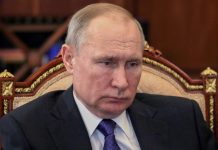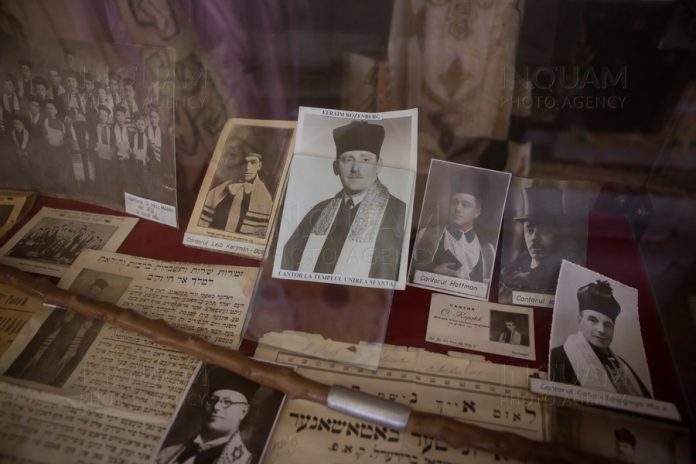
Ruminations on Holocaust Remembrance Day.
Monday is Holocaust Remembrance Day on the Jewish calendar, and coinciding with it is an annual pilgrimage known as the March of the Living – in which Jewish youth, Holocaust survivors and others spend several days in Poland retracing the steps of the horror. Treblinka, the Warsaw Ghetto, Auschwitz-Birkenau — the whole catastrophe.
This year it is especially fraught. That’s because of the sense of emergency across the Jewish world caused by an evident spike in antisemitism (the number of incidents rose 360%, said the Anti-Defamation League a few months ago) linked to the Israel-Hamas war. And it’s accompanied by existential angst about the future of the Jewish state amid so much virulent hostility from global youth especially.
I wrestle with the notion that the anti-Israel (and anti-Western) protests on college campuses in the US are necessarily antisemitic, because it is a complicated picture. It’s clear that most of the protesters understand little about the Middle East and are almost comically naïve about the genocidal barbarians of Hamas. On the other hand, while the Gaza War is justified after the Oct. 7 massacre, it has been devastating to the Palestinians, there are reasonable questions about its prosecution, and the current Israeli leadership is odious.
Some of the sentiment at these protests can reasonably be classified as classic Jew-hatred, and it’s also a case of highly selective righteousness: one wonders why all this anger takes a powder when it comes to every other injustice in the world. But my own conclusions are informed by a reluctance to cheapen the term “antisemitism” by conflating it with clueless political positions related to controversial actions by Israel. This is challenged by the outrageous hate speech from some of the prominent figures in these protests, but I think it does not apply to the mainstream.
My concern about keeping antisemitism in its box, and letting opposition to the war and even anti-Zionism fly free, perhaps stems from being the son of Holocaust survivors. My parents knew antisemitism in its original version, uncluttered by the stupidities of woke decolonization narratives. It was a visceral and deadly hatred of Jews that seemed supernatural. There was nothing political about it; it was pure evil.
My mother survived the 1941 Pogrom in Iasi (pronounced “yash”), in which over 13,000 Jews were murdered (about a third of the city’s Jewish population at the time). Her family survived by allowing Romanian Nazi collaborators to make off with a fetching young aunt; unspeakable, and it largely went unspoken. My father survived a Nazi labor camp in Ploiesti (pronounced “ployesht”); he survived by convincing his captors that he was a ping pong genius and then letting them win, earning an odd position as mascot. For decades thereafter he attributed magical powers to the game.
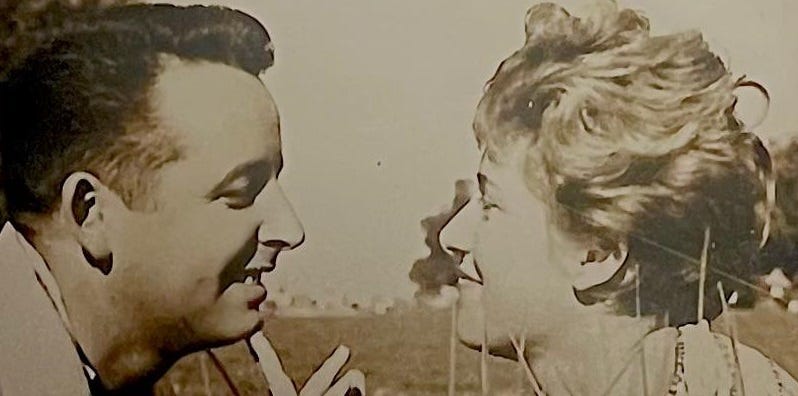
My parents then spent years struggling with systemic antisemitism in post-fascist communist Romania that prevented Jews from having normal lives, and in 1960 they fled. That is why I did not grow up in Romania, and such is the real antisemitism deal. I’m not eager to equate if to a bunch of attention-seeking fools who could not point out Israel on a map and think Hamas seeks racial equity. One is evil; the other stupid.
Either way, recent events have made me somewhat nostalgic about my own experiences with antisemitism in Romania. You see, I went there in 1990, as a foreign correspondent with the Associated Press, much to my parents’ chagrin. The antisemitism was still there, but it had mutated in fascinating ways.
The Romanian Jewish community had numbered almost a million before World War II, when half of them were killed. Most survivors found a way to leave. A few thousand remained, nomically led by a certain Rabbi Moses Rosen. I interviewed this great survivor and found him much concerned with renascent antisemitism in the post-communist era. That was quite interesting: when not shooting Jewish poets the communists had kept a lid on nativist nationalism, which was good for the Jews.
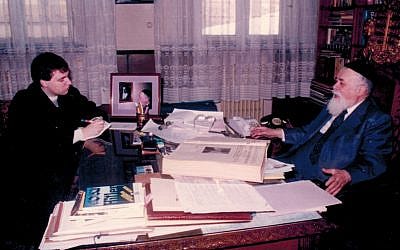
I was amazed to discover the tales of antisemitism to be somehow true — but now applying in a bizarro sort of way. Shockingly many people actually believed Jews had mysterious powers that enabled them to pull every string worth pulling in the world. But these confused people — one might call them “antisemitic philosemites” — admired the Jews as a result. A history of being ruled by corrupt Ottomans and Russian communists had made Romanians practical in the extreme; their lovely country had been trashed by criminals and now needed formidable, clever friends.
Especially they admired Israel. “The Jews turned their desert into a garden,” they would wistfully recite, with tuica (plum brandy) always at the ready. “Whereas we, the Romanians, have turned our garden into a desert!” It was an exaggeration, but one with more than a basis in truth. The economy was bone dry.
Invited for a personal meeting with the government spokesman, a certain Mr. Unteanu, at his makeshift office at the Intercontinental Hotel, I was advised to bring tribute in the form of Johnnie Walker Black Label. With awkwardly elaborate gestures he bade me to sit, poured us both a generous glass, lit himself a Kent cigarette, and looked me carefully up and down.
“Are you … Mosaic?” he asked. I admitted it was so. “I knew it!” he rejoiced. “It could be no other way. So young, yet in such a powerful position! Of course you are mosaic.” Journalists were much admired there then; we were considered politicians, but even more devious, which was good. Optimism and cynicism somehow converged at that twisted and wonderful moment in history. I laughed. the spokesman confided, whisperingly, that he was “Mosaic” as well.
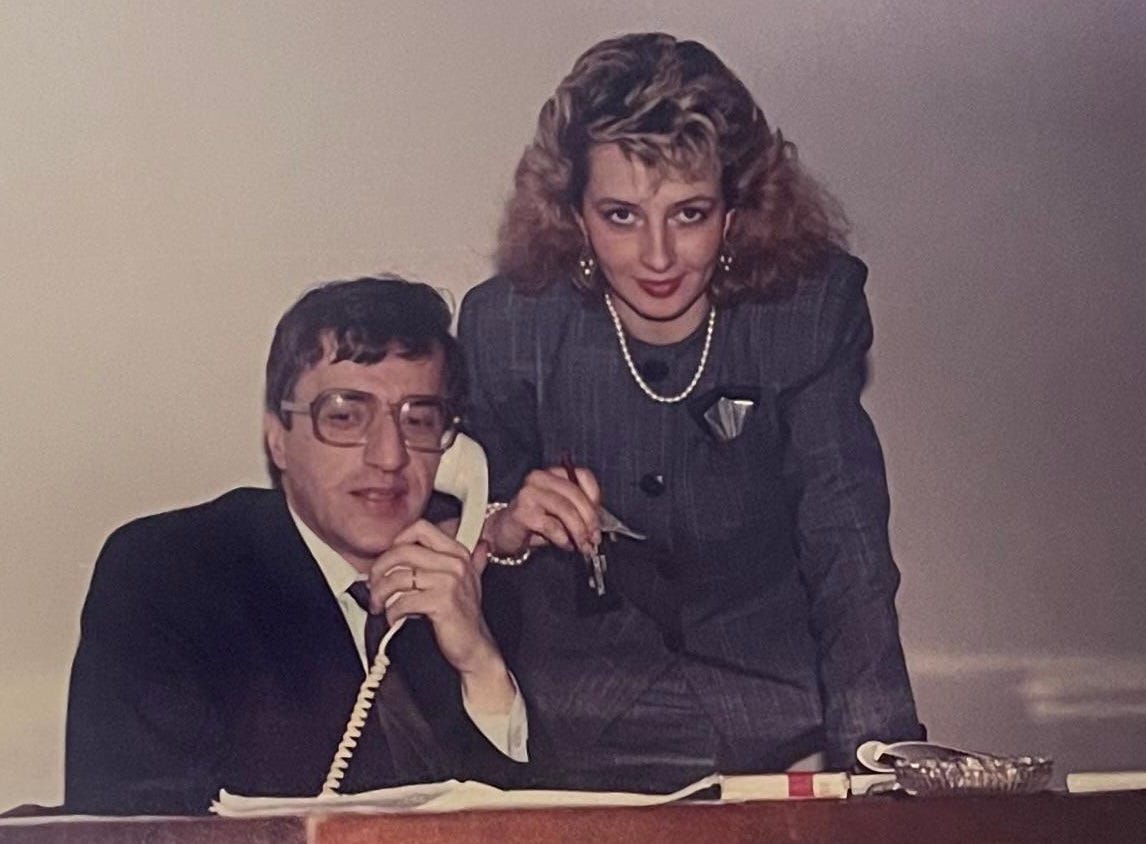
I was distracted by something even more absurd: his secretary was staring at me with an admiration I had never experienced in the United States. It was as if she was in a trance, at the sight of a genuine Jew. Her face glimmered with tiny gold sprinkles, which were popular in well-connected circles. I heard the Lambada blasting somewhere in the still-bugged hotel (on one occasion pizza arrived without an order; my colleagues and I had merely discussed the possibility of ordering, but the Securitate listeners had taken the initiative and kindly made our dreams come true).
Another young woman completely confused another American Jew by asking for his “map.” She was forced to explain that “everyone knew” there existed a map possessed only by the Jews that contained the secret instructions to domination of the world. He was shocked and offended at first — but ultimately found this possible to overlook. He understood she innocently wanted no more that a piece of the action.
Such an innocent time, despite their weird ideas about the Jews!
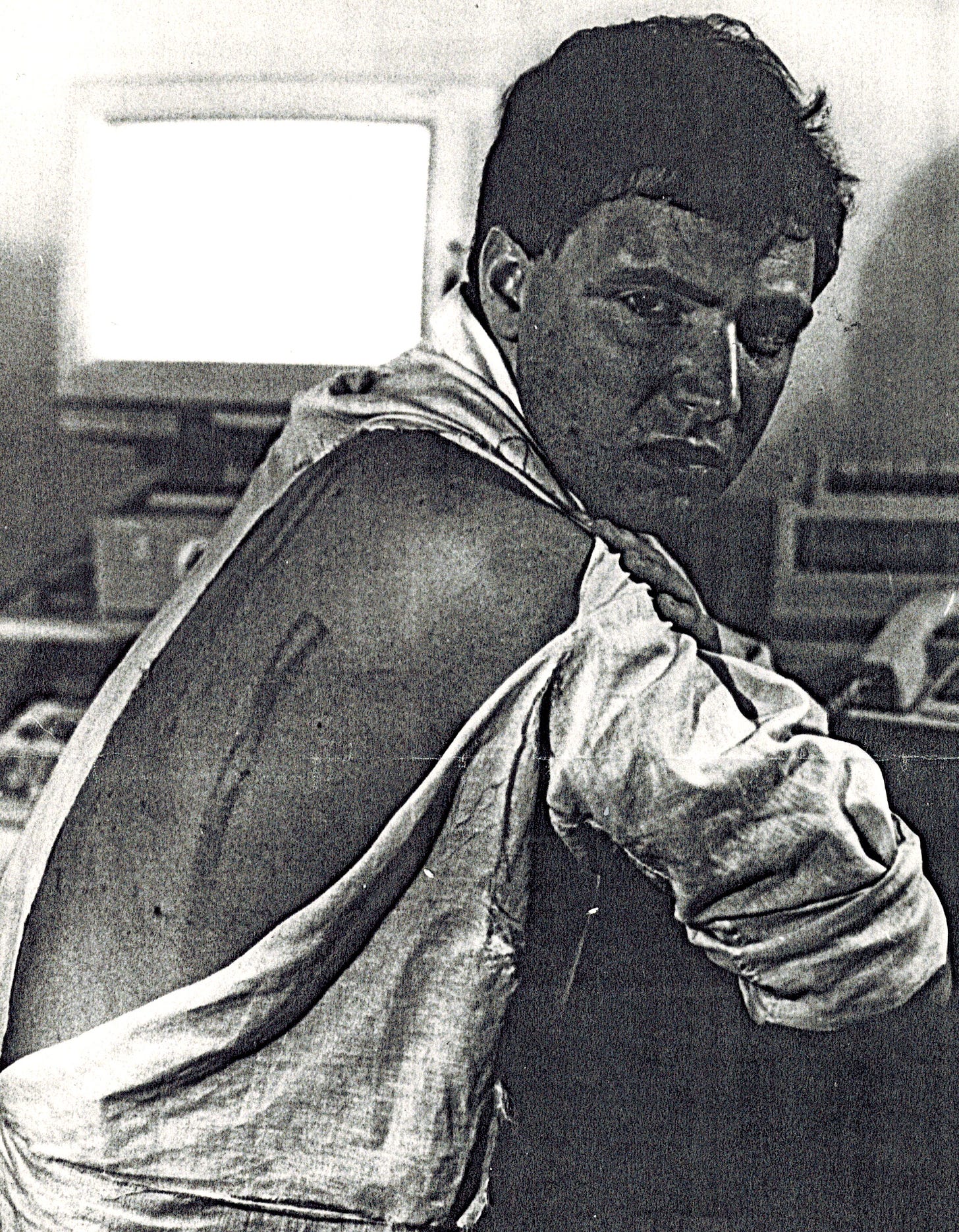
Journalists were to face beheadings and assassinations just a few years down the line, as the globe swung off its axis, but our adventures in post-communist eastern Europe were more mild in that brief interregnum. One day I was mistakenly beaten up by secret police and compensated with an interview with President Ion Iliescu, who told me laughable lies that I ignored, then tricked me by airing the entire discussion on state TV, making it look as if I uncritically accepted his bullshit. For months people would stop me in the street, imploring me to organize favors from the big man. I tried at first to explain, but gradually came to believe it was kinder to give them hope.
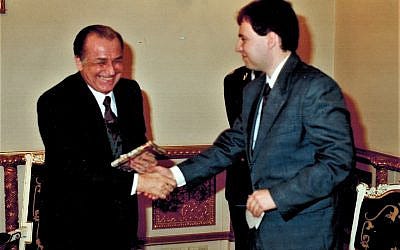
We did not know of the coming devastation in Yugoslavia, the digital disruptions, 9/11, Afghanistan and Iraq, the Great Recession, berserk global migration, class warfare in the West, the global scrambling of minds and alternative facts. We thought – everyone thought – that the Shakespearean salad days had finally arrived.
We did not know about Oct. 7, or Hamas, or the lunacies that now consume us.
„I don’t equate opposition to Israel’s actions with antisemitism, but let’s not be naive: the months since the 10/7 attack on Israel have exposed a degree of hatred toward Jews and incitement that is shocking, and that I did not expect to see in my lifetime,” says my friend Mark Moskowitz, who is headed to Poland today for the March of the Living. Mark will give a speech at the opening ceremony and on Monday will take in the march from Auschwitz to Birkenau. Poland, of course, is a different country now.
And as for Romania, a few hundred miles south? I have visited several times since those faraway days, and things have steadily advanced. Some people made great fortunes; beautiful old towns have been spruced up. Corruption never goes away, but the president is a liberal ethnic German, which is nice. The desperation and the wackiness are mostly gone, but so are the dreams, I fear. And what of the antisemitism? Is it still benign? In Romania, I think it is.
But storm clouds hover overhead, in eastern Europe and everywhere else as well, with prospects quite unclear.











